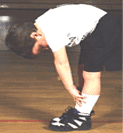The Role of Depression in Adolescent Obesity
Could suffering from depression put children and teens at increased risk for obesity? A study from the journal Pediatrics explores the possible link.
Previous studies have demonstrated a relationship between obesity in adolescence and adulthood, as well as a link between obesity and depression, particularly in women. Studies have also suggested that depressed adolescents tend to have a higher body mass index (BMI) later in adulthood than adolescents who are not depressed.
BMI is calculated by dividing weight in kilograms by height in meters squared. A BMI of 25 to 29.9 is considered overweight and 30 or higher is considered obese. BMI from 18.5 to 24.9 is considered normal in most people.
Does depressed mood predict the development and persistence of obesity in adolescents? This is the question that intrigued researchers at the University of Cincinnati College of Medicine, who analyzed data from a study of adolescents. They reported their findings in the journal Pediatrics.
Study Assesses Mood and Obesity in Adolescents
The study involved 9,374 adolescents in grades 7 through 12 who completed in-home interviews for the national Longitudinal Study of Adolescent Health. The researchers collected the following information from the adolescents at the start of the study and then again at a follow-up visit one year later:
- Depression status—Determined using the Center for Epidemiological Studies Depression Scale
- BMI—Calculated using self-reported measures for height and weight
- BMI percentiles—Determined using the 2000 Centers for Disease Control and Prevention growth charts
The researchers also asked a parent of each adolescent for information on household income, parental education, and parental obesity.
Results
 At the start of the study, 12.9% of the adolescents were overweight, 9.7% were obese, and 8.8% had depressed mood. There was no link between baseline depression and baseline obesity discovered. When looking at adolescents who were obese a year later, the researchers found that at the start of the study 79.6% had been obese, 18.6% had been overweight, and 1.8% had been a normal weight.
At the start of the study, 12.9% of the adolescents were overweight, 9.7% were obese, and 8.8% had depressed mood. There was no link between baseline depression and baseline obesity discovered. When looking at adolescents who were obese a year later, the researchers found that at the start of the study 79.6% had been obese, 18.6% had been overweight, and 1.8% had been a normal weight.
According to the researchers, having a depressed mood at baseline independently predicted obesity at follow-up, even after controlling for age, race, parental obesity, family socioeconomic status, and number of parents in the home. This relationship persisted after taking into account additional factors that could influence both weight and depression (such as physical activity, smoking, self-esteem, and conduct disorders). After controlling for all these factors, depressed mood also predicted obesity even among adolescents who were not obese at baseline.
The researchers concluded that depressed adolescents have an increased risk of developing or maintaining obesity during adolescence. A number of factors may influence weight gain in depressed adolescents, perhaps the most observable being overeating in response to the negative emotions or biological factors that accompany depression. For this reason, the researchers believe prevention and treatment should involve an understanding of the shared biological and social factors that play a role in both depression and obesity.
Signs of Depression in Adolescents
According to the American Academy of Child and Adolescent Psychiatry, adolescents most at risk for depression include those who are under stress, have experienced a loss or have attentional, learning, conduct, or anxiety disorders. Depressed adolescents may exhibit one or more of the following signs and symptoms:
- Frequent sadness, crying, feelings of hopelessness
- Decreased interest in activities
- Persistent boredom, low energy
- Social withdrawal
- Extreme sensitivity to rejection and failure
- Increased irritability and anger
- Frequent physical complaints such as headaches and stomachaches
- Poor performance in school
- Major changes in sleeping
- Loss of appetite or overeating
- Difficulty concentrating
- Abusing alcohol or drugs
- Suicidal thoughts or self-destructive behavior
- Running away from home
Depressed Adolescents Need Help
Parents and teachers should be on the alert for signs of depression in adolescents because early diagnosis and professional treatment is essential. Depression will not go away on its own. Furthermore, suicide is a leading cause of death in teenagers and young adults. Adolescents should always be taken seriously if they talk about suicide. Treatment may include individual and family therapy as well as antidepressant medicine. Parents should ask their doctor to refer them to a psychiatrist who specializes in the treatment of adolescents.
REFERENCES:
AmericanAcademyofChildand Adolescent Psychiatry website.
Goodman E, Whitaker RC. A prospective study of the role of depression in the development and persistence of adolescent obesity. Pediatrics. 2002;110:497-504.
Richardson LP, Garrison MM, Drangsholt M, et al. Associations between depressive symptoms and obesity during puberty. Gen Hosp Psych. 2006;28:313-320
Wardie J, Williamson S, Johnson F, Edwards C. Depression in adolescent obesity: culterual moderators of the association between obesity and depressive symptoms. Int J Obes. 2006;30:634-643.





